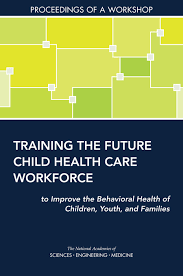

Most ebook files are in PDF format, so you can easily read them using various software such as Foxit Reader or directly on the Google Chrome browser.
Some ebook files are released by publishers in other formats such as .awz, .mobi, .epub, .fb2, etc. You may need to install specific software to read these formats on mobile/PC, such as Calibre.
Please read the tutorial at this link: https://ebookbell.com/faq
We offer FREE conversion to the popular formats you request; however, this may take some time. Therefore, right after payment, please email us, and we will try to provide the service as quickly as possible.
For some exceptional file formats or broken links (if any), please refrain from opening any disputes. Instead, email us first, and we will try to assist within a maximum of 6 hours.
EbookBell Team

4.8
54 reviewsContributor(s): National Academies of Sciences, Engineering, and Medicine; Division of Behavioral and Social Sciences and Education; Health and Medicine Division; Board on Children, Youth, and Families; Forum on Promoting Children's Cognitive, Affective, and Behavioral Health; Steve Olson and Sarah M. Tracey, Rapporteurs
Increasing numbers of evidence-based interventions have proven effective in preventing and treating behavioral disorders in children. However, the adoption of these interventions in the health care system and other systems that affect the lives of children has been slow. Moreover, with few exceptions, current training in many fields that involve the behavioral health of children falls short of meeting the needs that exist. In general, this training fails to recognize that behavioral health disorders are among the largest challenges in child health and that changing cognitive, affective, and behavioral health outcomes for children will require new and more integrated forms of care at a population level in the United States. To examine the need for workforce development across the range of health care professions working with children and families, as well as to identify innovative training models and levers to enhance training, the Forum on Promoting Children's Cognitive, Affective, and Behavioral Health held a workshop in November 2016. Workshop panelists and participants discussed the needs for workforce development across the range of health care professions working with children, youth, and families, and identified innovative training models and levers for change to enhance training. This publication summarizes the presentations and discussions from the workshop.